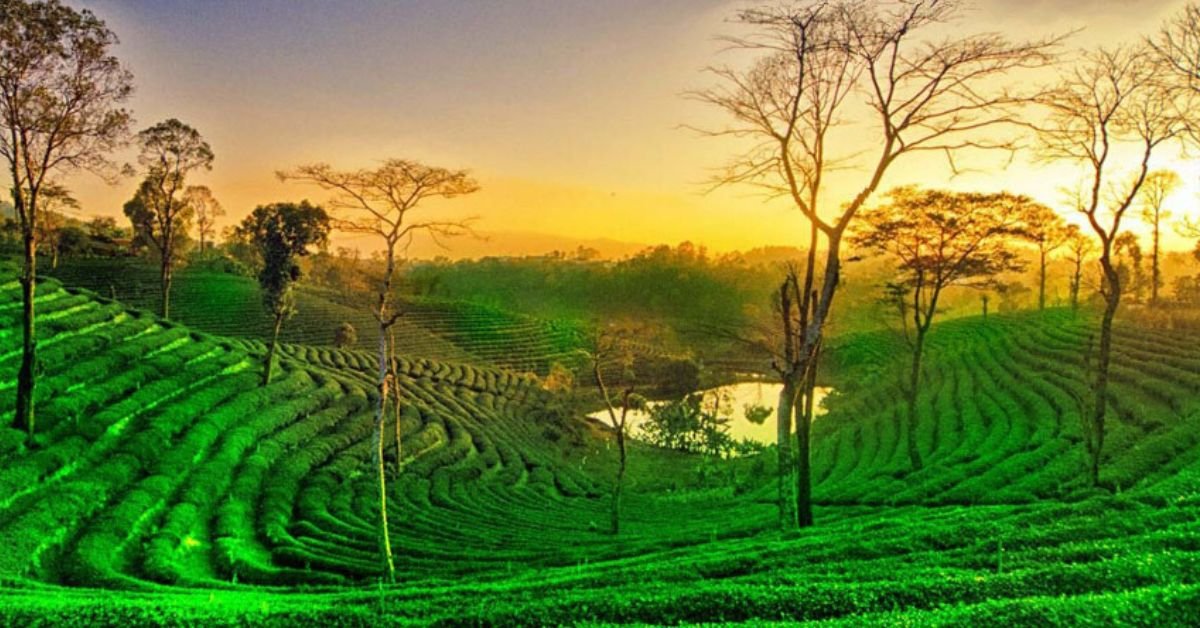Nestled amidst the lush landscapes of northeastern India, Assam stands as a verdant crown in the world of tea. Renowned for its expansive tea estates and the robust, malty brew they produce, Assam has been captivating tea lovers for centuries. From the time-honored traditions passed down through generations to the modern estates embracing sustainable practices, Assam offers an enchanting journey into the heart of India’s tea country.
How to reach:
By Air
- Major Airports: Dibrugarh (Mohanbari) and Jorhat are the closest airports to many tea estates.
- Connectivity: Both airports offer flights from major cities like Delhi, Kolkata, and Guwahati.
- Ground Transportation: Taxis and pre-arranged transfers are available from the airports to tea estates.
By Train
- Major Railway Stations: Jorhat Town, Dibrugarh, Tinsukia, and Golaghat are key railheads.
- Connectivity: Regular trains connect these stations to Guwahati, Kolkata, and Delhi.
- Ground Transportation: Taxis and local transport are easily accessible from the stations.
By Road
- Road Network: Assam boasts a good road network connecting major cities to tea estate regions.
- Options: Private taxis, state-run buses, and rental cars are available from cities like Guwahati, Dibrugarh, Jorhat, and Tinsukia.
- Scenic Drives: The journey through Assam’s countryside offers picturesque views.
Local Transport
- Within Tea Estates: Taxis, auto-rickshaws, and cycle rickshaws are available for short distances.
- Estate Transportation: Many tea estates provide transportation services for guests.
Best time to visit:
Winter (November to February)
- Pleasant Weather: Enjoy cool, comfortable days ideal for exploring.
- Peak Harvest: Witness the bustling tea harvest and potentially participate.
- Ideal for Sightseeing: Clear skies enhance the beauty of tea gardens and surrounding attractions.
Spring (March to April)
- Warming Temperatures: Experience blooming tea gardens and lush landscapes.
- Cultural Celebrations: Immerse yourself in local traditions and tea culture through festivals.
- Photography Paradise: Capture the vibrant colors of spring in stunning photographs.
Monsoon (June to September)
- Rainy Season: Expect heavy rainfall, which may limit outdoor activities.
- Unique Experiences: Some estates offer monsoon-specific tours focusing on tea processing and indoor activities.
- Lush Greenery: Witness the transformation of the landscape after the rains.
Post-Monsoon (October)
- Refreshing Weather: Enjoy clear skies and rejuvenated landscapes.
- Festive Atmosphere: Experience the cultural vibrancy of Assam through various festivals.
- Ideal for Exploration: Take advantage of pleasant weather to explore tea estates and surroundings.
Attractions:
Tea Plantations:
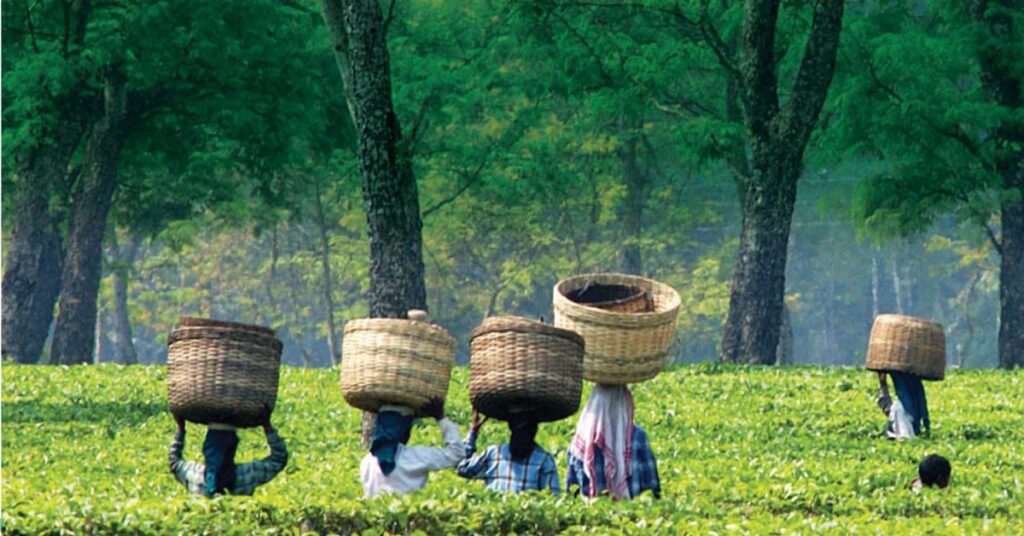
Immersed in Assam’s tea plantations, you’ll discover a world painted in vibrant green. Endless rows of tea bushes create a mesmerizing tapestry, and watching skilled pluckers harvest the tender leaves is a captivating sight. These serene landscapes, often shrouded in mist or bathed in golden sunlight, offer a tranquil escape. Guided tours unveil the artistry of tea cultivation, from nurturing young plants to the final harvest. You’ll gain a deep appreciation for the meticulous care and dedication that goes into producing Assam’s world-famous tea.
Tea Factories:
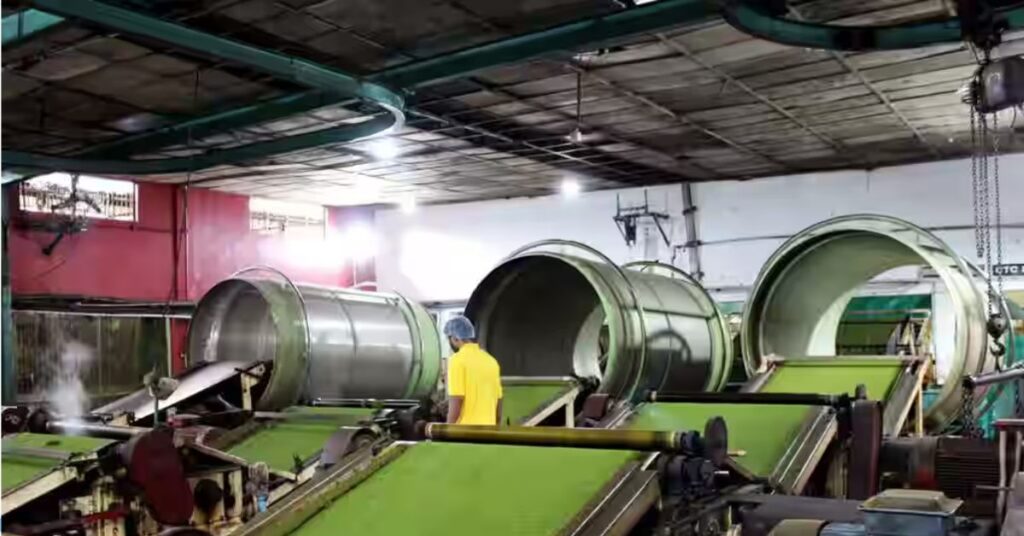
A visit to an Assam tea factory is a captivating journey into the heart of tea production. Witness the transformation of freshly picked leaves into the aromatic brew you cherish. From withering to drying, every stage reveals the artistry and precision involved. The rich aroma that fills the air is a tantalizing prelude to the final product. Expert guides share the secrets behind the flavors, explaining how each step contributes to the tea’s unique character. Many factories offer interactive experiences, allowing you to see the machinery in action and even participate in some of the processes. It’s a behind-the-scenes look that deepens your appreciation for the craftsmanship that goes into every cup of Assam tea.
Tea Tasting Sessions:
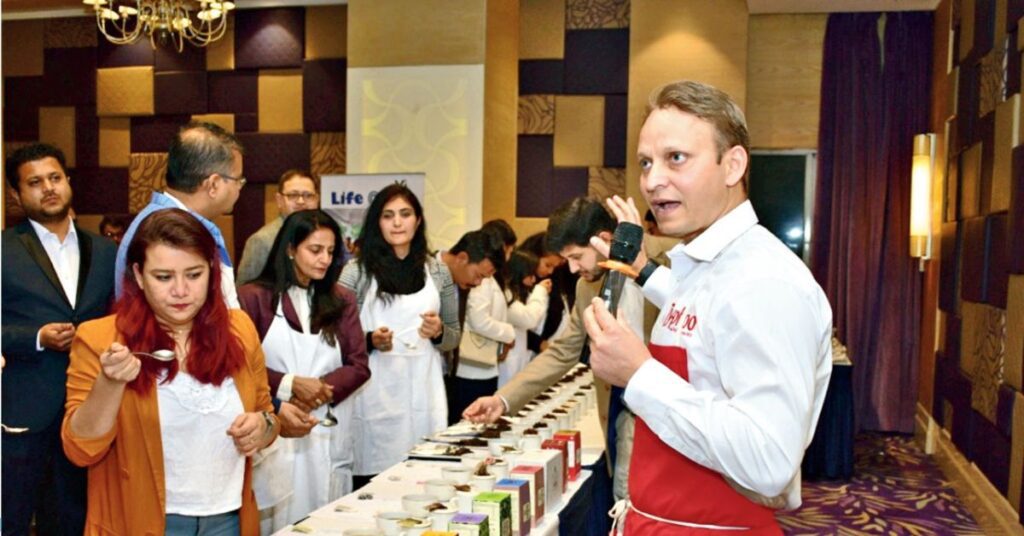
An Assam tea tasting is a sensory adventure. Guided by experts, you’ll embark on a journey through the diverse world of Assam’s teas. From robust CTC to delicate orthodox blends, you’ll learn to appreciate the unique characteristics of each. Discover the art of evaluating color, aroma, and flavor as you sip your way through different brews. These tasting sessions not only refine your palate but also deepen your understanding of the passion and craftsmanship behind Assam’s extraordinary teas.
Heritage Bungalows:
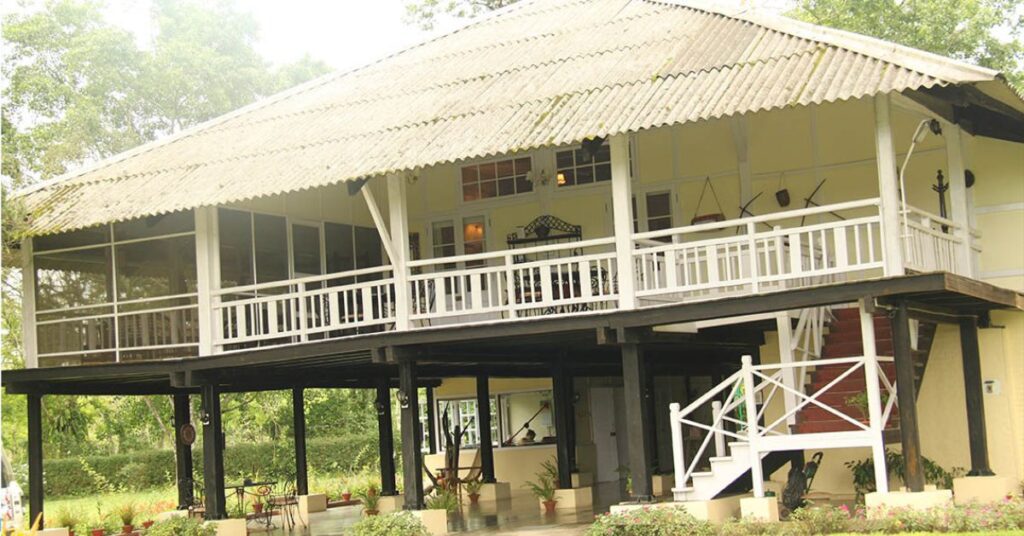
Staying in a colonial-era bungalow amidst Assam’s tea estates is like stepping into a bygone era of elegance. These grand homes, nestled within sprawling gardens and tea fields, offer a glimpse into the opulent lifestyle of the British Raj. With their high ceilings, spacious verandas, and antique charm, they blend colonial architecture with the natural beauty of Assam. Modern comforts coexist with the historic ambiance, creating a serene and luxurious retreat. Guests can explore the tea estate, indulge in tea tastings, and immerse themselves in the region’s rich culture. It’s a stay filled with history, tranquility, and the enchantment of Assam’s tea heritage.
Ethnic Villages:
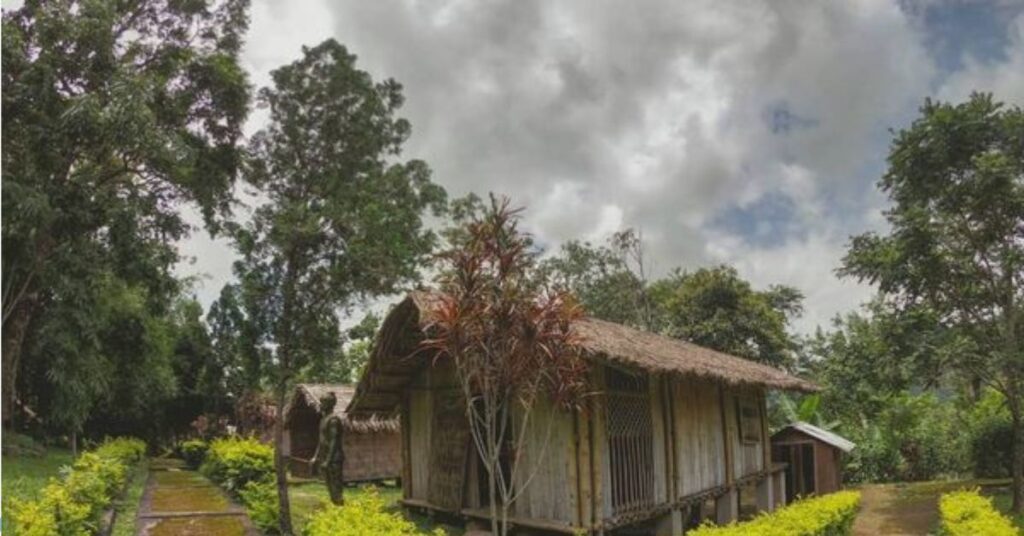
Immerse yourself in the vibrant cultures of Assam’s surrounding villages. Home to diverse communities like the Assamese, Bodo, and Mishing, these villages offer a glimpse into traditional ways of life. Engage with locals, witness their crafts, and experience their warm hospitality. From learning about weaving and pottery to savoring authentic cuisine, your visit will be a cultural adventure, deepening your appreciation for Assam’s rich heritage.
Assam Tea Museum:
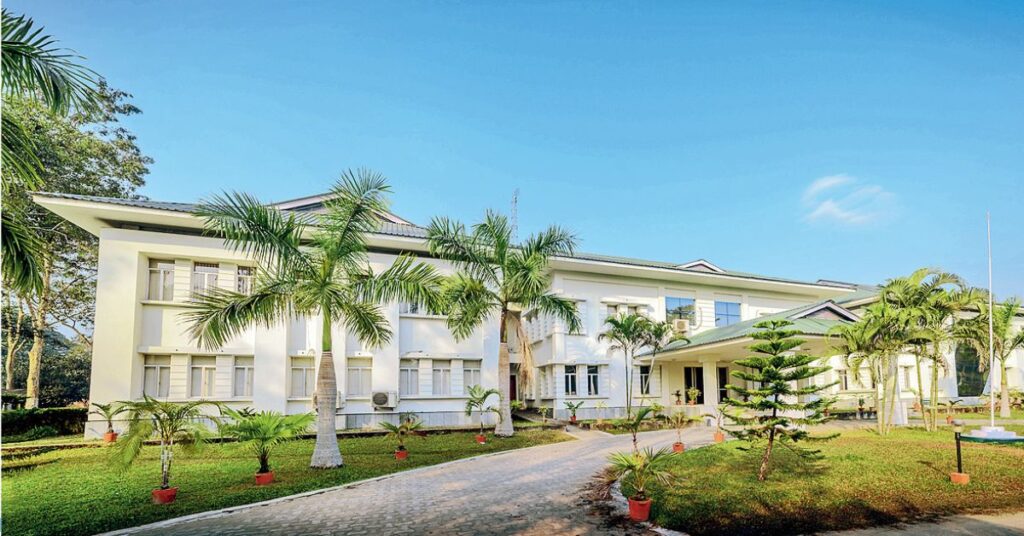
Uncover the rich history of Assam’s tea industry at one of its fascinating tea museums. Located in places like Jorhat and Guwahati, these museums offer a captivating journey through time. Explore exhibits showcasing historical photographs, tools, and documents that tell the story of Assam’s tea heritage. Interactive displays bring the past to life, revealing the social and economic impact of tea on the region. You can even witness traditional tea-making demonstrations and savor different Assam teas. It’s a chance to appreciate the profound influence of tea on Assam’s culture and economy.
Local Experiences:
- Pluck Tea Leaves: Learn the art of tea plucking alongside local experts.
- Savor Local Flavors: Indulge in authentic Assamese cuisine made with fresh, organic ingredients.
- Unleash Your Creativity: Participate in handicraft workshops and create unique souvenirs.
- Dance to the Rhythm: Enjoy vibrant Assamese cultural performances.
- Wander Through Nature: Embark on guided nature walks and spot diverse birdlife.
- Discover Local Traditions: Visit ethnic villages to experience authentic lifestyles.
- Become a Tea Connoisseur: Attend tea tasting sessions to appreciate Assam’s finest brews.
- Journey Through Time: Explore historical bungalows and learn about Assam’s tea heritage.
- Photograph Nature’s Beauty: Capture stunning landscapes and vibrant moments.
- Shop for Treasures: Discover unique Assam teas and handicrafts at local markets.
- Relax and Rejuvenate: Pamper yourself with spa treatments amidst serene surroundings.
Travel tips:
Before You Go
- Book Ahead: Reserve accommodations and tours, especially during peak season.
- Check Regulations: Be aware of any travel restrictions or requirements.
- Best Visit Time: Aim for the cooler, drier months (November to February) for optimal weather and tea harvest experiences. Avoid the monsoon season (June to September) due to heavy rain.
- Local Transport: Opt for local taxis or estate-provided transportation for convenience. Public transport might be less reliable in remote areas.
- Comfortable Clothing: Pack lightweight, comfortable clothing with warm layers for cooler evenings.
- Essentials: Don’t forget sunscreen, insect repellent, and a hat.
- Book Ahead: Reserve accommodations and tours, especially during peak season.
- Check Regulations: Be aware of any travel restrictions or requirements.
- Visit Time: Aim for the cooler, drier months (November to February) for optimal weather and tea harvest experiences. Avoid the monsoon season (June to September) due to heavy rain.
- Cultural Sensitivity: Adhere to local customs and dress modestly when visiting religious or cultural sites.
- Health and Safety: Stay hydrated, practice good food hygiene, and consider guided tours for a smoother experience.
- Guided Tours: Enhance your understanding of tea cultivation and local culture with guided tours.
- Local Cuisine: Savor authentic Assamese flavors and fresh, organic produce.
- Photography: Capture the beauty of the tea estates while respecting local customs and privacy.
- Souvenir Shopping: Support local artisans by purchasing authentic Assam tea and handicrafts.
- Eco-Consciousness: Minimize your environmental impact by respecting the natural surroundings.
Conclusion
Immerse yourself in Assam’s enchanting tea estates, where lush greenery meets rich heritage. Explore sprawling plantations, witness the artistry of tea making, and savor the diverse flavors of Assam’s finest brews. Immerse yourself in the region’s vibrant culture through traditional performances, village visits, and handcrafted souvenirs. For a deeper understanding of Assam’s tea heritage, visit historical tea estates and museums. Follow Xplro.com For more.
FAQs
- What is the best time to visit Assam’s tea estates?
- The ideal time is from November to February for cool weather and tea harvesting; spring (March-April) is also pleasant.
- How can I reach Assam’s tea estates?
- Fly into Guwahati or Dibrugarh, then take a taxi or train to reach the tea estates.
- Do I need a guide to visit the tea estates?
- A guide isn’t necessary, but recommended for deeper insights and a richer experience.
- Can I stay overnight at the tea estates?
- Yes, many tea estates offer overnight stays in heritage bungalows and guesthouses.
- Are there any specific cultural etiquettes I should follow?
- Respect local customs, dress modestly, and ask for permission before photographing locals.
- What activities can I do at the tea estates?
- You can enjoy tea plucking, factory tours, tea tasting, nature walks, and cultural performances.
- Is Assam tea available for purchase at the estates?
- Yes, most estates have shops where you can buy a variety of Assam teas.
- What should I pack for my trip to Assam’s tea estates?
- Pack light clothing, warm layers, sunscreen, insect repellent, a hat, and sturdy shoes.
- Are the tea estates family-friendly?
- Yes, they offer activities for all ages, including nature walks and cultural events.
- How long should I plan to stay at the tea estates?
- A 3-5 day stay is ideal to fully enjoy tours, activities, and relaxation.
- What kind of food is available at the tea estates?
- Enjoy traditional Assamese cuisine, featuring rice, fish, lentils, and fresh vegetables.
- Are there any health precautions I should take?
- Drink bottled or purified water, eat at reputable places, and consult your doctor if necessary.




